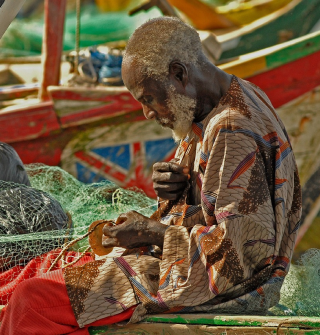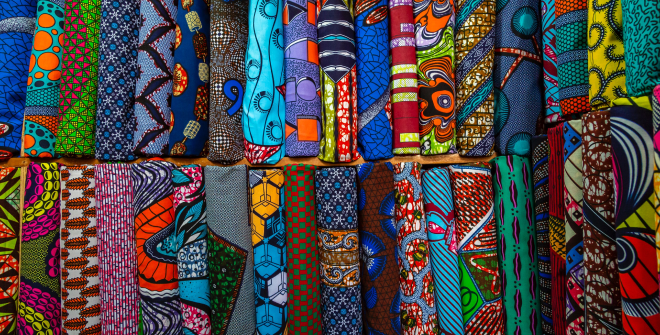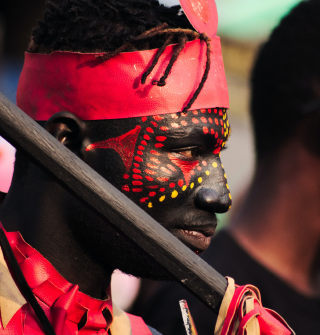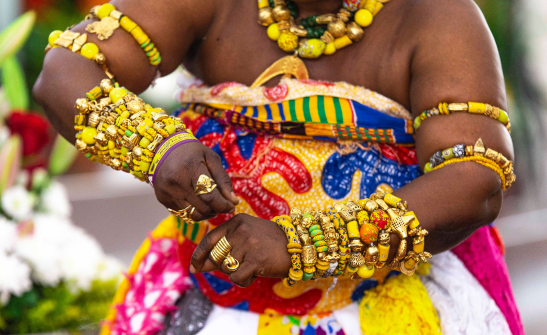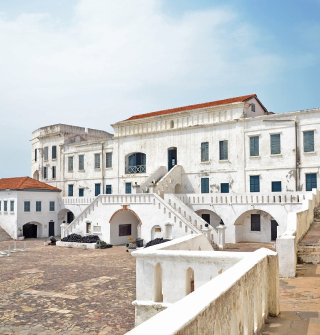Ghana Tour
1.990 Euros
Description
Guided by Afrocentric principles, this tour takes you across the country of Ghana, through the different ecological, ethnic, and political zones.
Encounters with the lives and livelihoods of locals will present Ghana in historical and contemporary contexts through the perspectives, oral traditions and histories of Ghanaians themselves. This provides an authentic counter-narrative to Western-based written images of what is Ghanaian and African, which tend to contain significant distortions. Whether it is your first or further visit to Ghana, you will encounter new lives, nerves, and narratives for a first-hand experience you will cherish and be enriched by.
Encountering Ghana from the inside
This exploratory tour of Ghana takes you through five regions of the country. It will introduce you to the events, people, landscapes, and cultures, that make Ghana destination of the choice for those seeking a combination of exploring local culture, traditions, history, society, and nature with an enriching yet relaxing holiday. We will explore social and cultural relations, religion, and traditional leadership (chieftaincy) as unifying factors of people of different ethnicities in Ghana, which is an unique phenomenon in Africa.
The rich traditional history of the different ethnic societies in Ghana will give you new insights into the cultures of Ghana and Africa. We suggest a 21 day programme. The tour can be shortened or extended according to your preferences. Our suggested itinerary will start from the capital region of the country, the Greater Accra Region, which is adorned with cultural, social, political, and economic history such as the forts and castles, on to the Volta, Northern, Ashanti, and Central Regions where rich ecology and culture welcome us.
The Volta Region offers beautiful scenery such as the Mount Afada (the highest mountain in Ghana), Lake Volta (the largest man-made lake in the world), Mount Adaklu and Mount Gemi, and the Wli Waterfalls (the highest waterfall in West Africa). We will visit the village of Amedzofe which is considered the highest settlement in Ghana. We will then travel to the Northern Region which is home to warm-hearted people, unique architecture, traditional crafts, and wildlife. We will explore the evidence of the peaceful co-existence of different religions which is well represented in the Northern Region, where people of different religious beliefs such as Islam, Christianity and traditional beliefs live peacefully together.
We will also visit the famous city of Tamale, observe the process of Shea Butter production and visit the Mole National Park. The highlight of the tour is the Ashanti region, where we immerse ourselves in the rich culture and the dominance of Ghana’s royalty.
Starting from the palace of the king of the Asante Kingdom, the Manhyia Palace Museum, which is located in the heart of the beautiful city of Kumasi, we will also be introduced to the production of Ghana’s traditional cloth called Kente during a visit to the Bonwire Kente Village.
A stroll through West Africa’s largest open-air market will give us a taste of Ghana’s bustling market traditions and plenty of shopping opportunities.
Tour schedule suggestion
Upon arrival at Kotoka International Airport in Accra, you will be picked up and taken to the hotel.
After breakfast at the hotel and an introduction to the tour program, a bus will take us to the Black Star Square and the Kwame Nkrumah Museum and Memorial Park/ the National Museum of Ghana, where we will be given a historical-educational tour. The Kwame Nkrumah Memorial Park and Mausoleum houses the final remains of the pan-African icon and the first President of Ghana, Osagyefo Kwame Nkrumah. Together with the George Padmore Library, the Mausoleum hosts rare literature and artefacts on the African struggles to dethrone imperialism and colonialism.
We lunch at the Mausaleum restaurant, where there is a wide variety of foods to choose from; both local and conitinental dishes.
In the second part of the day, we will visit the Ussher Fort. Exemplifying the numerous forts and castles along the shores of Ghana as symbols of colonialism and enslavement, the Ussher Fort is one of the important forts in Ghana built by colonialists in pursuance of colonialism and enslavement of the African peoples. We will be taken through the history of the fort and a walk through the fort and its immediate surroundings.
In the near Jamestown district, we will shortly interact with the Ga community and will be taken back to the hotel by bus.
Later at sunset, we will take a leisure tour at the Labadi Beach Resort with a beautiful view of the sea. Labadi Beach is one of the most frequented beaches in Ghana. It offers a great urban beach experience, with a clean beachfront, food, and music.
Current developments and events in Ghana can better be understood through the histories of various ethnic groups. At the Department of Archaeology of the University of Ghana, artefacts and archaeological findings tell the rich history of people from the works of Ghanaian and non-Ghanaian professors. Most often these sources provide alternative, more authentic sources of history than most Western-written materials.
Culture and traditions of Ghana can be appreciated also from the Performing Arts such as Drama and Dance. At the Drama and Dance Studios of the University of Ghana, periodic performances, usually by students, provide relaxation while learning a lot about societal values, personalities, and life events in Ghana.
Educational tours through the Department of Archaeology and the Drama and Dance Studios will enable us to gain an in depth understanding on the various ethnic groups, their diverse culture, and arts.
We will be taken to Tema by bus, where we will visit a chocolate production company and learn about cocoa and local chocolate production, and of course be able to taste the delicious product.
The rest of the day will be available for individual activities.
Early in the morning, a bus will take us to Volta Region, where we will be accommodated in the Wli Waterfalls Guest House in the Amedzofe area.
Amedzofe, the highest human habitation site in Ghana, is in the mountainous region of the Ho-West District of the Volta Region with beautiful sceneries. The annual Kusakorkor festival for puberty rights for girls is a rich cultural attraction. The Volta Region is endowed with the most welcoming people, and natural gifts such as Mount Afadzato (the highest mountain in Ghana), the Ote Falls, Mount Gemi, popular for its symbolic cross mounted at the summit by German Missionaries in the 1880s.
We will take a hike to the steep trail up to the top of Mount Gemi and enjoy the beautiful 360 scenery of the Amedzefo village.
Afterwards, we will visit the Amedzefo townships with cultural displays from the locals and recreational activities at the Amedzofe canopy walk and nature reserves.
We will have dinner in a local setting.
After an early breakfast, a bus or motorbikes will take us to the base of the highest mountain in Ghana, Mount Afadjato, where we will hike up the mountain, enjoying the view from the highest mountain in Ghana.
We will proceed to the Wli Waterfalls, located near the border to Togo, for a historical education about the site, swimming, and relaxation. Wli Waterfalls are the highest waterfalls in West Africa. They are locally known as Agumatsa Waterfalls which means “Allow me to flow”. The easy walk to the falls is made more beautiful by the presence of numerous fruit bats and an inviting pool for swimming at the foot of the falls.
In the evening, we will enjoy a music hangout at the Bamboo River Resort.
We will travel by bus back to Kotoka Airport, Accra, in the morning, then take a 45-minute flight to the Northern Region (Tamale). The Northern Region is the third largest region among the 16 regions in Ghana, it is known for its unique culture, land, history, and natural resources. It also boasts of beautiful sites like the Mole National Park known as Ghana’s largest protected area, the Larabanga mosque, and traditional healing centers among others. We will lodge in Tamale, the capital town of the Northern Region to prepare for the next day.
On this day, we will experience local life from different perspectives. We will take a tour with locals, visit the Chief Palace, experience the local market with various shopping opportunities, and observe the process of the production of shea butter, which has many health benefits. Ghana lies at the heart of shea production in West Africa. Shea butter is a natural oil produced from the shea tree, across the Sudan Savannah zones from Darkar in Senegal to Kampala in Uganda.
Currently a primary ingredient in cosmetic and food pastry industries across the world, particularly in Europe and North America, the shea industry is a typical sector that is highly incorporated into the global production system. Women dominate the industry as primary collectors of shea nuts and processors of shea paste into shea oil for the market.
Tamale is one of the major cities in the Northern Region. We will experience the Tamale lifestyle, food, dance, culture, and music, as well as the typical Muslim community. We will also observe the unique weaving of the traditional cloth of the north known as the smock.
We will take a trip to the Mole National Park, which is one of the largest wildlife habitats in Ghana, and will then proceed to the Larabanga Mosque – Ghana’s largest mosque, and the mystic stone.
On this day, visitors can organise their own activities or stay at the hotel to rest.
We will move by bus to the Asante Region and do a first short tour of the city of Kumasi, the capital of the Ashanti region.
A cultural and historical tour on this day will take us to the Manhyia Palace/Prempeh II Museum and the Akomfo Anokye sword site. The Manhyia Palace is the seat of the Asantenhene (the king of the Asantehene). The palace is located at the heart of the beautiful city of Kumasi. The first Manhyia Palace which was converted into a museum houses significant history, sculptures, and artifacts of the Asante kingdom, from Ghana’s prehistorical era to date.
We will visit the traditional Bonwire Kente Village – one of the kente weaving communities in Ghana. The traditional fabric of Ghana, Kente, is a strip-woven textile regarded as the best-known cultural textiles of African origin. It is carefully handmade by highly skilled personnel. The Kente is an iconic symbol of royalty. Lately, Kente has become the number one go to for weddings and celebrations in Ghana. The Bonwire Kente Village is popular for producing a wide range of kente fabrics used on most occasions in Ghana. In the Volta Region among the Anglo, Kente is one of the highly skilled artisanal cultures. The Volta Region produces another rich version of Kente that is also used for sacred purposes on special occasions by royalty and common people.
Later on, we will proceed to the Kejetia market – one of West Africa’s largest open markets. It offers a large range of commodities such as foodstuffs, fabrics, wears, etc.
The bus will take us to the Central Region. We will rest at the hotel for the rest of the day.
As a continuation of our learning experiences at Ussher Fort, we will visit the (in)famous castles in Cape Coast and Elmina. The Cape Coast Castle and the Elmina Castle are a few of the forty castles built by the Europeans in Ghana for commercial and trading purposes. These castles served as the house for slaves during the transatlantic slave trade period. As such, they represent memories of the pains of enslavement, resource shipping from Africa, and colonialism. They house lots of historical memories and moments in the precolonial and colonial era, such as the ‘door of no return’, that enable an authentic understanding of history and inform diasporic renaissance in Ghana.
In the second part of the day, we will visit the Kakum National Park for a canopy walk and relaxation.
On our second day in the Central Region, we will visit the Assin Manso Slave River side. This river was one of the largest slave markets for gathering of indigenes during the Trans-Atlantic Slave Trade era, and it is known as the place where the slaves had their last bath before leaving the country. We will be taken through its history and what it serves for in the modern-day Ghana.
Because of its location by the Atlantic Ocean, one of the major sources of protein in the Central Region is fish. As such, the fish market will expose us to the major occupation of the indigenes.
The bus will take us back to Accra, where we will spend the last two days before departure.
The bus will take us back to Accra, where we will spend the last two days before departure.
On the last day of this journey, we will enjoy the nightlife in the streets of the famous Osu district of Accra. Nightlife in Accra is usually bubbling with music (of various kinds, such as Jazz, liveband music, afrobeats etc.), exotic street foods, concerts and clubs. We will experience a few interesting places in Osu.
Visitors will be dropped off at the Airport for their individual departure times. Those who are staying longer in the country will be assisted in their transfer to the respective location.
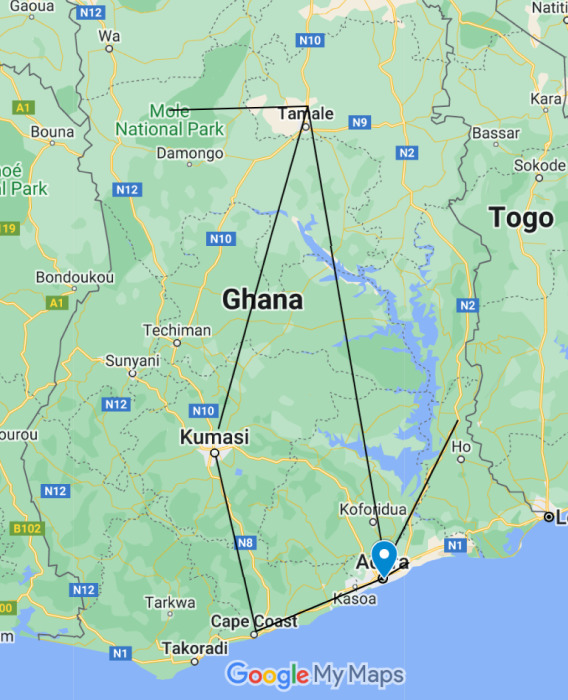
Enquire Now
Send us a message for individual or group requests by using the form below.
Services
Included services
- Transfer from and to Kotoka International Airport in Accra
- 20 nights in local modest hotels and guesthouses in double room
Breakfast and dinner for 20 days, additional to that lunch during organised activities - Drinking water during the whole tour (we recommend you to bring a reusable drinking bottle)
- Local tour guides throughout the whole tour (language: English)
- Transportation throughout the whole tour by private vans, local buses, and motorbikes (optional), one-way flight from Accra to Tamale
- Entrance fees and guided tours according to the program
Excluded services/additional costs
- Flight to and from home country
- Travel insurance
- Visa costs *1
- Single room (additional costs: 284 Euro)
- Alcoholic drinks
- Tips
- Personal health certificates and prophylaxis *2
- Expenditures for activities that are not part of the organized program*1Confirm entry conditions with the Ghanaian Embassy of your country. A single entry visa to Ghana currently costs 110 Euro for German citizens. You must apply for visa (tourism visa) to the Ghanaian Embassy of your country ahead of your travel. We will provide you with the documents required from your travel agent (invitation letter/hotel booking, details of Ghanaian host). German residents find all relevant information and the online application portal here: https://berlin.ghanagovernmentmission.com/portal/ *2.To enter Ghana and to apply for visa to Ghana, proof of yellow fever vaccination is obligatory.
Optional extension/addition
- Arrangements of stay of extended days
- Guide for extended days and places
- Family stays during extended days
- Internship and business partnerships during extended days (see Internship section)
- Assistance for organising research in any part of the country

